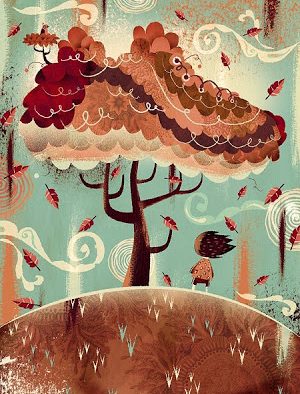Allowing Space for Surprises


Chintan Girish Modi writes a lovely article about an important lesson he learnt when he was facilitating a writing workshop for students.
While facilitating a writing workshop with school students in the summer of 2009, I noticed a pattern of strange occurrences. Some of the pieces that were being turned in sounded nothing like their authors’ other work. Expressions such as ‘four-leaved clover’, ‘a poem as lovely as a tree’, and ‘jolly heaven above’ struck me as particularly odd, coming from my students. The words seemed borrowed, forced, even inauthentic. I could not get myself to be glad about any supposed gains in vocabulary, since I was sure something was not quite right. It took me a while to realize what was going on, and to name the problem—plagiarism! Thanks to Google, I discovered that my students had not simply ‘lifted’ a few words, but entire texts. Poems such as Joyce Kilmer’s ‘Trees’, Richard Edwards’ ‘Good Luck’, and Robert Louis Stevenson’s ‘The Vagabond’, among others, were being passed off as the students’ own work. There was no change in the actual wording of the texts. The poet’s name was merely replaced with the respective student’s name.I was furious. Here was I, thinking of myself as a well-intentioned teacher, designing a new writing programme completely devoted to topics that students wanted to write about. I was certain that students would love the opportunity to write about things that mattered to them, experiences that held personal significance beyond pleasing the teacher and scoring good marks. The brief was simple: we’d work towards putting together a community magazine; students could write about any topic under the sun, as long as they kept their audience in mind; they would get peer and teacher feedback on their work; all drafts could be revised and shaped into final versions; each student would keep a portfolio consisting of drafts, feedback, and final versions.Months later, as I looked through the journal entries written during that teaching stint, something hit me. I had missed something that had been staring right into my face. I had decided to work with learner-chosen topics because I wanted students to rid themselves of their dependence on essays memorized from composition books. How naïve of me to imagine that students would break out of their established patterns overnight!While I had set out with wonder-eyed enthusiasm about the rich possibilities that lay in using learner-chosen topics, I had not anticipated the challenges this would pose to my students. The experience of another teacher, who tried encouraging student voice in academic writing in her own classroom, taught me that students resisted the new way of doing things because “they didn’t want to have to think that hard. They wanted me to tell them what to write. It was easier that way. And it was what they were used to.” (Gemmell 2008: 65).It also occurred to me that my simple brief might have been excruciatingly daunting for those 10-14 year olds. Their previous writing experiences in school and at home might have been completely different from this one. Writing for a real audience, giving and receiving feedback after carefully reading and thinking about their peers’ work, and putting their writing through a process that includes multiple drafts to be entered into a portfolio—all of this could have brought on tremendous pressure, though it was intended to help them become better, flexible, resourceful writers.
Image Source : Alberto+Cerriteño








